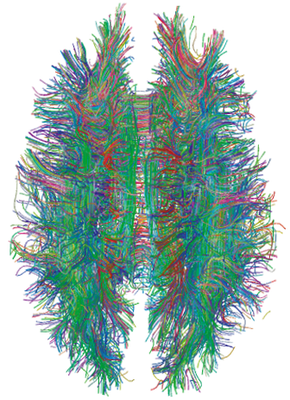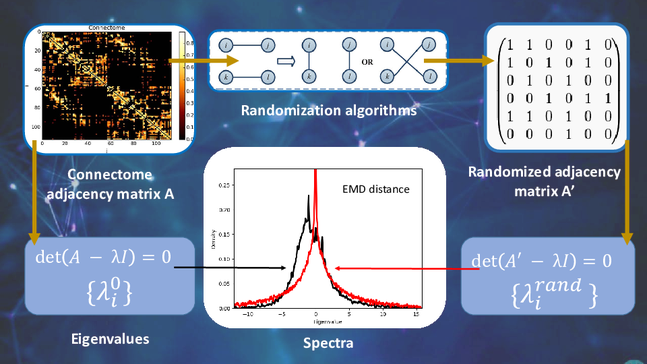Seminar talk by Dr. Sergei Nechaev (LPTMS, CNRS - Universite Paris-Saclay, France)
by Dr., Sergei Nechaev
Spectral peculiarity and criticality of a human connectome
In the talk, I will present our study on the spectral analysis of structural connectomes from various organisms, utilizing open-access data. We have uncovered exciting new insights into the human brain's connectome. One of our key findings is that the spectral density of the human connectome deviates more significantly from that of a random network compared to other organisms. For most animals, their connectomes can be closely replicated by a network evolution model that favors the formation of 3-cycles. However, in the case of the human brain, preserving local clustering was essential to accurately model its connectome. Furthermore, the spectral statistics of the human connectome align with a critical regime observed in condensed matter physics, which is a hybrid of Wigner-Dyson and Poisson distributions. This result strongly supports the intriguing hypothesis that the human brain operates at a critical state, a concept that has been widely debated.




